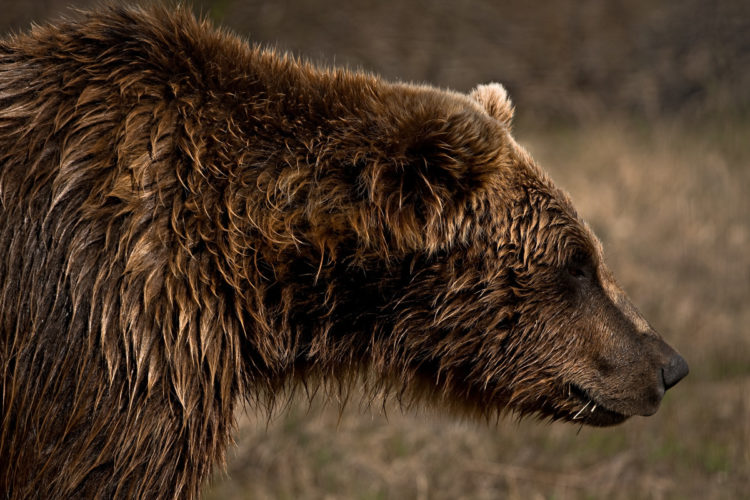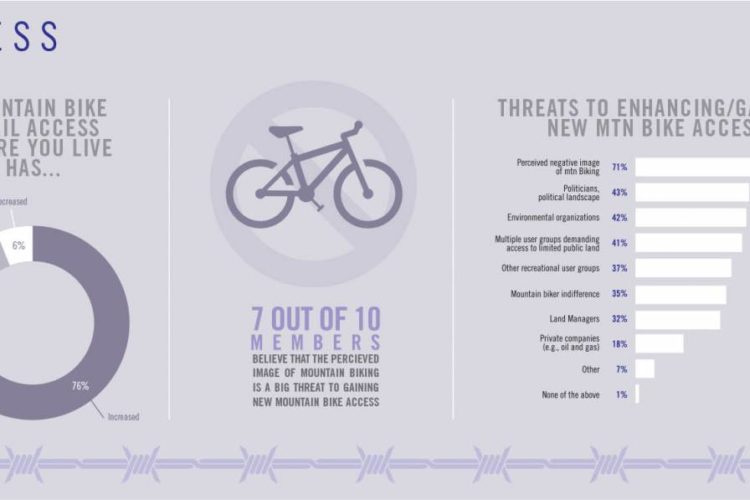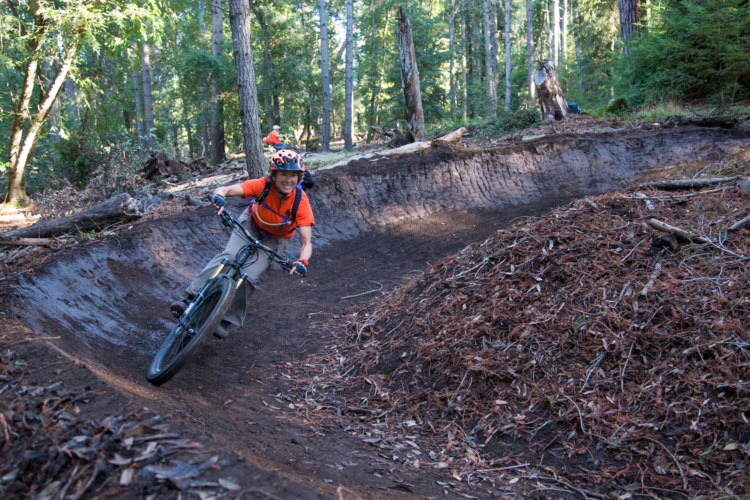
A nonprofit hunting advocacy group based out of Jackson, WY has sued the Bridger-Teton National Forest (BTNF) for continuing to allow mountain bike access in the Palisades and Shoal Creek Wilderness Study Areas (WSAs).
Mountain Pursuit, a small group of hunters that advocate for ethical and sustainable hunting, assert that the Palisades and Shoal Creek WSAs that were established with the 1984 Wyoming Wilderness Act, require the Forest Service to manage the WSAs according to the language specified in the Act. Since mountain biking was not explicitly mentioned in the act, Mountain Pursuit finds the BTNF’s travel management plan inconsistent with the the Wilderness Act of 1964 and the Wyoming Wilderness Act.
The group is also including off-highway vehicles and ATVs in their complaint, since they say use has become more prevalent in the Shoal Creek WSA.
Mountain Pursuit’s biggest complaint largely stems from the Lithium downhill trail and the Black Canyon trail, located off of Teton Pass.
“A downhill MTB trail within the Palisades WSA is heavily marketed and advertised by the mountain bike industry, outdoor recreation industry, and social media, and continues to see more and more use,” wrote Mountain Pursuit. “As well, the rapid growth of bikepacking and subsequent social media marketing is pushing this use further and further into both WSAs – negatively impacting wildlife.”
Lithium is a 3-mile, downhill-only bike trail with almost 3,000ft of descending that is primarily shuttled by car up Teton Pass. Riders can hang out on the side of the Teton Pass Highway, near the base of the pass with a thumb hoisted into traffic for a chance to catch a ride up the mountain. Although this may sound a little strange for most mountain bike destinations, hitch-hiking up the pass has been popular for skiers and bikers for a long time.
[see_also id=’64193′]
Mountain Pursuit continues that “few ORV/ATVs existed in 1984 when the act was passed. These narrow, 4WD vehicles can go places passenger vehicles can’t, resulting in significantly increased motorized use in the Shoal WSA – especially during hunting season.”
And, like ORV/ATVs, mountain biking was hardly a conception in 1984 when the Act was passed.
The Teton Valley News reports that in August of 2018 a Wyoming Public Lands Initiative Advisory Committee meeting failed to reach a consensus with how local WSAs are managed. Rob Shaul, who founded Mountain Pursuit, made a few proposals during the meeting in August and was displeased with the outcome and failure to reach an agreement.
In April of this year, Mountain Pursuit sent a letter to the supervisor of the BTNF, Tricia O’Connor, and stated that the forest is legally required not to permit any summer motorized or mechanized activity in the Palisades and Shoal Creek WSAs beyond what the forests allowed in 1984.
“Mountain biking in the Palisades WSA, especially, has exploded in recent years, to include Forest Service approved new trail construction for the extensive and growing system accessed off of Teton Pass,” wrote Mountain Pursuit. “The negative impacts of motorized and mechanized (MTB) travel on big game, specifically elk and deer, are significant.”
The Forest Service responded saying that, “While some Forests have chosen to analyze mountain bike travel as part of Travel Management planning, non-motorized travel (including mountain bikes) is not governed by the Travel Management Rule, and is not required to be included. The BTNF chose to focus travel planning analysis on the requirement to address motorized travel, in part due to the often lengthy delays in implementing decisions experienced by those Forests who did chose to include mountain bikes in their travel plans.”
O’Connor, the BTNF forest supervisor, then addresses the concerns about impact on wildlife and mountain biking in the mentioned WSAs. “It is well documented that all types of recreation have the potential to disturb wildlife.”
The supervisor notes that the BTNF staff is aware that mountain bike activity has increased on Teton Pass, but is ultimately concentrated on two trails, Lithium and Black Canyon.
“With the exception of the Black Canyon and Lithium trail near Teton Pass, we have no evidence to indicate that mountain [biking] has significantly increased in the WSAs. If you have data that suggests otherwise, we would certainly be interested in seeing it. I believe that we need to use our collective energy to focus on the future rather than debating the past.”
That response was far from satisfactory for Mountain Pursuit.
“Mountain Pursuit isn’t your father’s hunting group. We represent hunters ready to roll up their sleeves, and jump into the arena, and fearlessly fight for wildlife.”
The lawsuit demands several things that were originally listed in the organization’s first complaint sent to the BTNF in April.
The plaintiff is challenging the USFS decision to allow the use of mechanized equipment (mountain bikes) in the Palisades WSA, and motorized vehicles in the Shoal Creek WSA, as the group finds both inconsistent with WSA management.
The lawsuit continues that the Forest Service has ignored any guidance on managing the WSAs provided by the Wilderness Act and the Wyoming Wilderness Act, and effectively fostered, encouraged, and managed for heavy mountain bike traffic.
Advocates for Multi-Use of Public Lands (AMPL), a nonprofit group also based in Jackson, WY released a statement following the lawsuit.
“This lawsuit is clearly an attempt by a small user group to remove other recreationists from our public lands.”
The group works with local mountain bike trail advocates Mountain Bike the Tetons, based in Victor, ID, just west of Teton Pass, and the Teton Freedom Riders, located in Jackson, WY.
Tony Ferlisi and Kevin Kavanaugh, heads of Mountain Bike the Tetons and Teton Freedom Riders, respectively, added their thoughts to the statement.
“Mountain Pursuit’s engagement at this level is unproductive, self-serving, and counterintuitive to the spirit of collaboration we share when meeting challenges on our public lands,” said Ferlisi.
“It is a lawsuit that is aimed to harm the greater good of our community by eliminating our urban interface to our natural environment, all to satisfy their agenda,” added Kavanaugh.
Looking at the reasoning behind Mountain Pursuit’s lawsuit, although they might be arguing for a more untainted version of wilderness, as seen in their eyes, statements throughout the document only reinforce the idea that the hunters want the area to themselves, or at least open to as few as possible, so that elk remain within vision for them.
The lawsuit cites a study about the impact of recreational trail users on elk activity. The study, conducted by researchers with the Forest Service, the Department of Fisheries and Wildlife at Oregon State University, the OSU Cooperative Fish and Wildlife Research Unit, and the Oregon Dept. of Fish Wildlife looked at the impacts of hikers, mountain bikers, horseback riders, and off-road vehicle users on elk in the Starkey Experimental Forest in northeast Oregon.
The study found that elk maintained the most distance from trails when they were used by off-road vehicles, followed by mountain bikers, hikers, and horseback riders. The lawsuit uses this one study as an example to drive their point home.
“The study supports Plaintiff’s concerns that recreation management on public forests can displace elk to private lands during hunting season.”





















12 Comments
Oct 18, 2019
Oct 17, 2019
Oct 11, 2019
Oct 12, 2019
Properly limited, culling animals from the herd simply causes the herd to produce more and healthier members.
A quick Google search shows that elk populations in Wyoming are actually higher than what wildlife management wants. In this situation hunting is beneficial; however it also means that other potential activities such as mountain biking are not really a critical concern. This is not some high-minded ecological action; it's run-of-the-mill use conflicts pursued in court.
One thing to ask about any policy decision is, what are the *unintended consequences* of a choice? The intended consequence here is to eject a noticeable population of recreational users from the trail system. While it will certainly get *mountain bikes* off of the specific trails in question, riders will not stop using backcountry. You'll see them ride on trails outside the national forest that are also by elk habitat; or spread out across the national forest trail system as hikers. If *overall* impact on elk population was a real concern, concentrating use around two trails would be a good thing.
Oct 11, 2019
Oct 13, 2019
Oct 12, 2019
First, the each user group was given four passes by the elk. The differences in elk displacement between foot and bike traffic were largely insignificant, and in one pass, the displacement was actually higher by foot traffic. Pointing to this as some sort of proof that bikes have an unacceptable impact on elk is unfounded. What's more, the fact that there are far more hikers than cyclists on most backcountry trails more than compensates for any sort of per encounter differential.
Beyond that, the study itself is flawed in its methodology. In an attempt to eliminate an uncontrolled variable by mixing results for different herds, the same herd was used for all exposure. But the herd was exposed to motorized vehicles first, and mountain bikes second. So by the time the herd was exposed to pedestrians, the elk heard had been habituated to human presence. So naturally, they're less likely to be displaced.
Oct 11, 2019
“The negative impacts of motorized and mechanized (MTB) travel on big game, specifically elk and deer, are significant.”
Apparently stalking and KILLING wild animals in their own habitat (aided by high-tech navigation and tracking devices, sophisticated decoy and bait systems, and weapons with advanced technologies ) has no significant impacts on the animals.
Oct 17, 2019
I have some experience with hunting. But, I spend most of my time in the woods, biking, running and hiking. And I can tell you I have seen more wildlife doing those activities than actually hunting. Elk hunting is a tracking hunt. They are constantly moving. These hunters need to quit there whining and get to tracking!
Oct 18, 2019
Oct 14, 2019
Oct 15, 2019